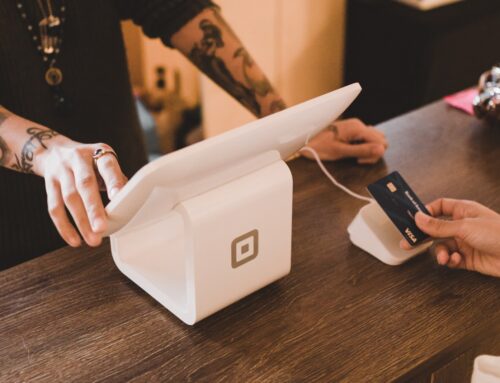Any business that receives payments through credit and/or debit cards, or other electronic means will need a merchant services provider to verify and process the payments. When a business runs a credit card payment, funds are transferred from the client’s card to a holding account. This holding account is called a merchant account. Once the funds are verified, they are then transferred to the business’s actual bank account. New business owners often don’t understand why they must open a separate merchant account for processing electronic payments. Especially if they already have a regular bank account for receiving payments. If this is you, keep reading for more information on how does a merchant account work.

How Does a Merchant Account Work
What is a Merchant Account?
A merchant account is a type of bank account that allows businesses to collect credit card, debit card, and other electronic payment options from clients at their shops as well as over the internet. A merchant in this case is the business requiring the services that will enable it to collect payments. Also, a merchant services provider is a company that can provide the tools and systems to collect electronic payments.
Merchants may need two separate credit card merchant accounts, one for internet payments and the second one for in-store payments. This is because internet payments are more likely to be fraudulent as compared to in-person payments. Therefore, they will need stricter controls and verification to stop fraudulent transactions. Internet merchant accounts have higher fees to cover the extra verification that must be carried out.
When getting a merchant account, you also need to get an internet payment gateway. You will need this in order to send card information to the card provider for verification. This is like the handheld PDQ Machine that you find in shops. Some internet merchant account providers have a one-stop-shop that provides both the payment gateway and merchant account.
While you may get an internet merchant account from your bank, it may be easier to get them from providers specializing in internet merchant accounts. Some banks don’t even offer merchant accounts to e-businesses due to the higher perceived level of risk.
How Does a Merchant Account Work?
When merchant payments are made, the credit card merchant or merchant services company collects the payment and deposits the funds into the merchant account. The bank then verifies the payment and transfers the funds into the business’s bank account. Fund transfers from merchant accounts to your business’s regular bank account may take place on a daily or weekly basis. This will be dependent on the arrangements you have set with your merchant services provider.
Merchant Accounts charge a variety of merchant account processing fees. These fees include application fees, setup fees, monthly fees, equipment rentals fees, and transaction fees. When shopping for a merchant account, be sure to compare the different fees charged by each to choose the one with the best value for money. Some accounts also have prohibitive contracts that prevent you from canceling the account without a heft penalty.
How To Get A Merchant Account
Numerous companies offer merchant account services, yet it’s not so easy to get a merchant account. Not only because of compatibility but because of the risks of fraudulent transactions, most organizations need businesses to meet certain requirements before they can issue an account. Some of the factors that merchant account providers look at are the type of business you have, how long you have been in business, your credit history and that of your business, and whether your business has any other merchant accounts.
It may be easier to get a merchant account from the bank that holds your business or personal accounts. This is because they will have evidence of your financial history. If your business is new and you don’t meet all the requirements to open a merchant account, your chosen provider may still open an account for you. But they will probably charge you higher transaction fees to compensate for the risk they are taking. Once your business is established you may be able to negotiate lower fees or choose a merchant account provider with better terms.

Merchant Account Processing
A Basic Understanding of Merchant Accounts
A merchant account acts as an agreement between a retailer, a merchant services provider, and the retailer’s bank to clear credit card and debit card payments as well as electronic payments. This article has explained the essentials of how does a merchant account work. For more information on merchant accounts such as the merchant accounting process, read the rest of our site.


